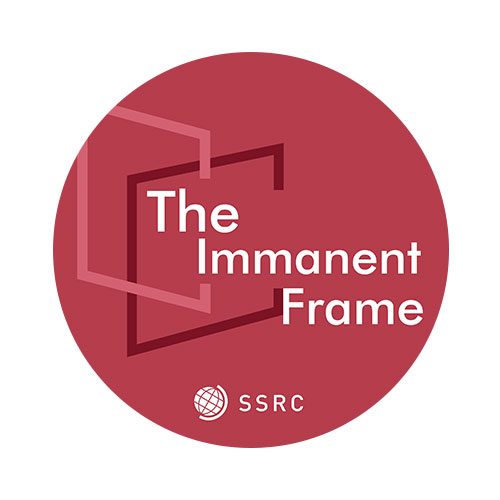Continuing the “Disaster Studies” theme of the “Covid-19 and the Social Sciences” series, Stephanie Russo Carroll, Desi Rodriguez-Lonebear, Randy Akee, Annita Lucchesi, and Jennifer Rai Richards demonstrate the need to understand the role of data as a mechanism of both oppression and liberation. In the wake of the Covid-19 pandemic, Indigenous Peoples are working to gain control of their tribal data to combat the erasure of their communities, and to advance data sovereignty. Through this work in the short-term, the authors describe how control over their own data will support access to needed resources in response to the pandemic. In the longer term, data sovereignty will help advance systemic change, and contribute to the larger goal of dismantling racism.
Starting with SSRC president Alondra Nelson’s reflections on “Society after Pandemic,” this series of essays explores the human, social, political, and ethical dimensions of Covid-19. These pieces call attention to how social research can shed light on the short- and long-term effects of the pandemic and what can be done to improve responses, both now and in the future.
The publication of this series would not be possible if not for the help of the following SSRC staff:
Juni Ahari, communications and editorial assistant.
Cole Edick, program associate, Anxieties of Democracy and Media & Democracy programs.
Carrie Hamilton, program assistant, Social Data Initiative and Media & Democracy program.
Saarah Jappie, program officer, Transregional Collaboratory on the Indian Ocean.
Michelle Lee, program assistant, International Dissertation Research Fellowship.
Line Sidonie Talla Mafotsing, communications and editorial assistant, African Peacebuilding Network and Next Generation Social Sciences in Africa.
Daniella Sarnoff, program director, International Dissertation Research Fellowship.
Catherine Weddig, program assistant, Social Data Initiative and Media & Democracy program.
Themes
Essays


Education and Democracy in Covid-19 America
by Domingo MorelIn this “Covid-19 and the Social Sciences” essay, Domingo Morel investigates the relationship between the Covid-19 crisis, social inequality in the United States, and public schools. He argues that certain education reform movements in recent history have left public schools, which disproportionately serve low-income communities of color, particularly vulnerable to a global pandemic. Morel finds that efforts to “reimagine” public education in this moment are not attentive to the needs of these vulnerable schools and communities. He asserts that this is a violation of the equal right to education that should be guaranteed in a democratic society.

The Political Theology of Corona, the Virus with a Crown
by J. Brent CrossonThe first time I saw one of the sewn fabric masks that have now become so popular during the coronavirus pandemic was not in the United States, where I currently live, but in Venezuela. It was March 2020. My mother-in-law had just gotten internet in her home in a small city in the Venezuelan Andes, and my partner and I were able to have our first video call with her. She told us how a public health official had come to her home, reminding her to get tested at the local clinic free-of-charge, while her neighbor had sewn masks for the entire block. The cloth mask hid her expressions of concern as she asked about our health and the rates of infection in the United States.

Covid-19 in Africa: Youth at the Fore
by Alcinda Honwana and Nyeleti HonwanaCovid-19 is among the deadliest pandemics the world has experienced in recent history. The African continent has, thus far, fared comparatively well with just under 150,000 confirmed infections and about 5,000 fatalities as of early June 2020. Even so, the heavy economic, social, and emotional toll of the pandemic on the continent is already clear, and some analysts estimate that the situation will worsen in the coming months. Given its underresourced health-care systems and lack of social safety nets, Africa’s best hope for mitigating the spread of Covid-19 lies in community-based prevention efforts. This will require very strong locally led campaigns of information dissemination, along with community mobilization and sensitization.

Emotions as the New Ethical Turn in Social Research
by Shobana ShankarWriting for our “Covid-19 and the Social Sciences” series, Shobana Shankar reflects on how the pandemic has thrown into question basic assumptions that emotions impede knowledge-creation and dissemination. She explores instead how we might consider how emotions and their manipulation are part of social norms, including norms of scholarly work; and how the disclosure of emotions that affect our perception and presentation of research, along with privilege and positionality, is the new ethical turn in a landscape of research insecurity.

V is for Veracity
by Jenny ReardonJenny Reardon, in her contribution to the “Covid-19 and the Social Sciences” series, argues that the metaphors of war and battle in fighting Covid-19, now commonplace, can have their own problematic effects on how we imagine and act in the face of the pandemic. The “us vs. them” imagery that war metaphors promote pulls us away from veracity—“trustworthy truths” that foreground human (and nonhuman) relations and interdependencies. The pandemic provides an opportunity, Reardon argues, to mobilize veracity for a more just post–Covid-19 future.

Voting in Crisis: The Likely Impact of Coronavirus on US Political Participation
by Jake HaselswerdtIn this “Covid-19 and the Social Sciences” essay, Jake Haselswerdt asks how the Covid-19 pandemic will affect political participation, particularly voting, in the United States. Comparing the current pandemic to the financial and housing crisis of 2008—a year in which the United States held a high-turnout election—Haselswerdt debunks the notion that when Americans’ lives are disrupted by crisis, they are mobilized to turn out to vote against incumbents. Drawing on recent research about “personal crisis,” he finds that it can actually demobilize citizens as they divert their time and energy to more basic needs. Importantly, the specific constraints of a pandemic—from lockdowns to loss of life—are likely to have additional demobilizing effects.

Using Social Science to Understand and Respond to Covid-19 in Jails and Prisons
by David C. Pyrooz, Ryan M. Labrecque, Jennifer J. Tostlebe and Bert UseemIn the wake of the Covid-19 pandemic, jails and prisons have become particularly vulnerable to the spread of the novel coronavirus, putting millions of incarcerated people at risk. In this essay for the “Covid-19 and the Social Sciences” series, David C. Pyrooz, Ryan M. Labrecque, Jennifer J. Tostlebe, and Bert Useem draw on their research in Oregon facilities, and reflect on the complex issues of doing research with prisoners under pandemic conditions. They report on prisoners’ sense of safety given the health risks inside prisons and speak to efforts to mitigate the spread of the virus.

Pandemics in the Post-Grid Imaginary
by Joanne Randa NuchoThe Covid-19 pandemic has forced a reckoning with the deep inequalities in the United States. Racism and poverty are life-and-death matters. But the virus also reveals what has long been unraveling in this country—a universal approach to the provision of public goods, infrastructures, and services. As an anthropologist who works on infrastructural politics in Lebanon and lives and teaches in California, I realize there are deep vulnerabilities that come with fragmented, patchwork approaches to the provision of essential services. Not only does the United States lack a public system that guarantees medical care, but there has been a lack of basic coordination between federal, state, and local jurisdictions.

Coronized Lives in Response to Covid-19: Hopeful Lockdown or Haplessness?
by David Ngendo-TshimbaThe prolonged Covid-19 lockdown in Uganda is exacting a huge toll on the people’s resilience. Although the pandemic is global, it is experienced differentially in various countries and locales around the world. Preventive measures such as lockdowns have a long history as nonpharmaceutical interventions to blunt the force of extreme mortality events. However, there is much that is new about the present Covid-19 crisis.






